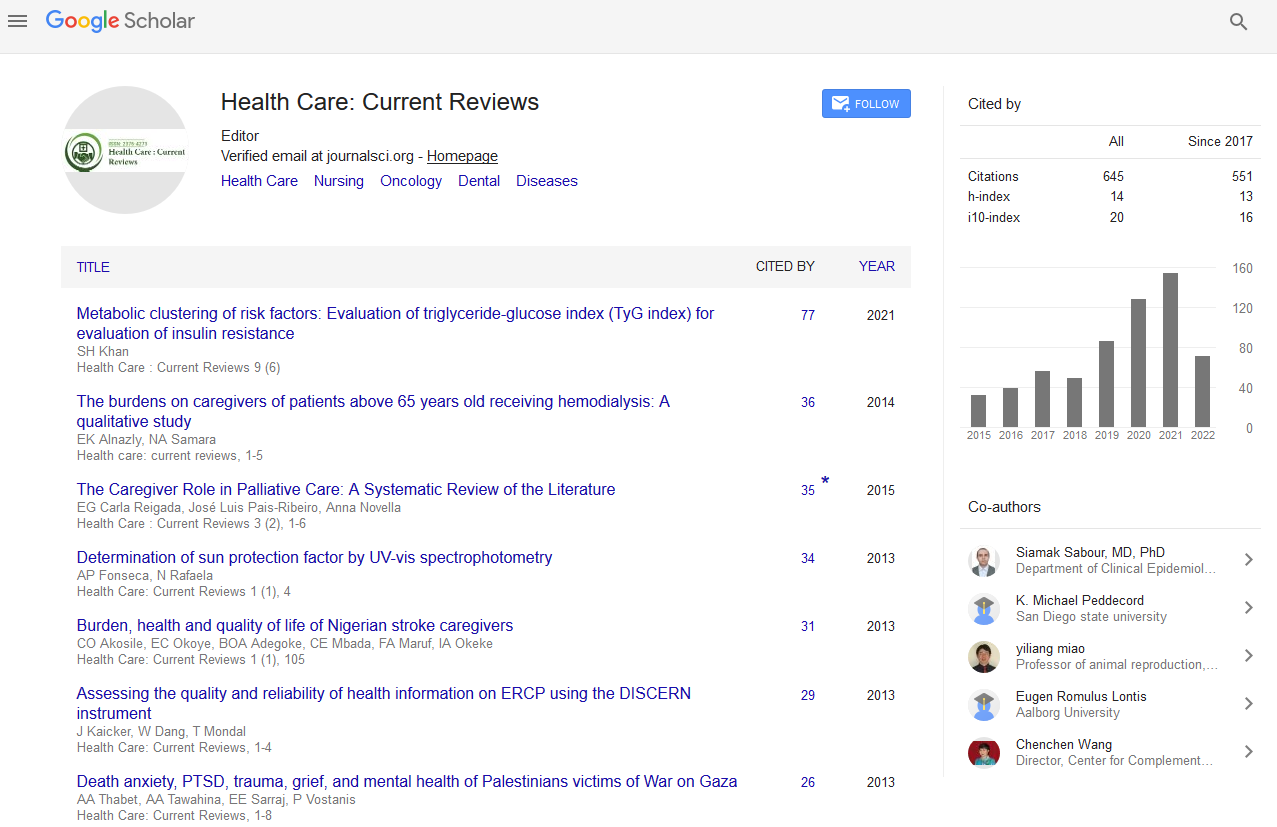PMC/PubMed Indexed Articles
Indexed In
- Open J Gate
- Academic Keys
- RefSeek
- Hamdard University
- EBSCO A-Z
- Publons
- Geneva Foundation for Medical Education and Research
- Google Scholar
Useful Links
Share This Page
Journal Flyer

Open Access Journals
- Agri and Aquaculture
- Biochemistry
- Bioinformatics & Systems Biology
- Business & Management
- Chemistry
- Clinical Sciences
- Engineering
- Food & Nutrition
- General Science
- Genetics & Molecular Biology
- Immunology & Microbiology
- Medical Sciences
- Neuroscience & Psychology
- Nursing & Health Care
- Pharmaceutical Sciences
PATTERNS OF RESPONSES TO LIFE TRANSITIONS: THE EXPERIENCE OF GROWING OLD
7th World Congress on Healthcare & Technologies
September 26-27, 2016 London, UK
Celia Pereira Caldas and Carina Bertero
Rio de Janeiro State University, Brazil
Linköping University, Sweden
Scientific Tracks Abstracts: Health Care: Current Reviews
Abstract:
Background: Growing old is a life span transition. Retirement is a social and cultural transition. Both transitions may make older persons vulnerable. In examining transition experience, it may be useful for Health Promotion professionals to consider a client�??s ability to deal with change and differences. Aim: The aim of this study is to identify and describe the patterns of responses to life transitions of Brazilian retired older adults, eliciting their experiences of growing old. The study spanned the period between the working life, retirement and old age. Method: Qualitative Study using narrative research Method and the framework of Transition Theory to guide the analysis. Eleven autonomous and independent persons, 64 - 82 years old, who were living in their own homes, agreed to participate in the study. Qualitative interviews were conducted at a geriatric outpatient unit at Rio de Janeiro State University. Results: The first turning point was a childhood event and the next was their first job. The third turning point was moving to another place/house or an-other city, the fourth starting a family, and retirement was the last turning point. Conclusions: The goal of Health Promotion should be to empower individuals at vulnerable points during the transition process, facilitating health outcomes. Many older people feel environmentally disconnected throughout life. Environment and social disconnectedness are vulnerabilities that can be addressed by health care providers during the life course and with people of all ages, particularly with frail older persons.
Biography :
Celia Caldas had her graduate degree in Nursing Science from Rio de Janeiro State University in 1982, her master's degree in Collective Health from the same University in 1993 and the PhD in Nursing Science from Federal University of Rio de Janeiro in 2000. Celia Caldas is an Associate Professor in Nursing Science at the Nursing Faculty (under graduate and graduate programs), and at the Medical Sciences School Graduate Program, Rio de Janeiro State University, Brasil. Her research area includes Gerontological Nursing, Family Care, Health and well-being, Nursing/caring theory and empiric nursing, concepts, elderly social issues and community care aspects.
Email: celpcaldas@hotmail.com


